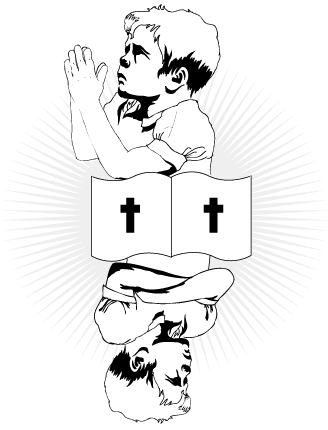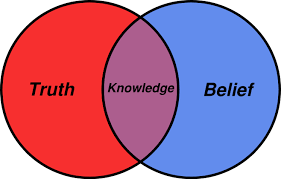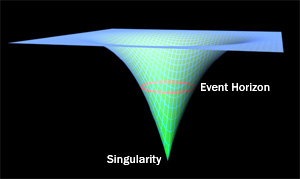
I didn't think I'd be writing a part 2 to this subject but, like the
movies that inspired my title, I'm fated to weigh-in once more. This time, however, my good friend,
Gregory (a first-rank Catholic apologist) has opened the opportunity for some hearty debate. His response to my
first article carried with it the flavour of tart sauciness, and seemed steeped in more than a little spicy polemic.
What follows is my response to his comments. His remarks will be in red and mine will remain black.
"I suppose if we want to ignore the nuances of definitions, we can say all sorts of silly things, and point out ample non sequiturs to bolster our defense."
More than likely true. And most certainly true for the usual operations of Catholic rhetoric. More about that later, however.
"The statement, 'The Catholic Church has/can/will never err(ed)' is at best shorthand for 'When officially defining and promulgating doctrine pertaining to Faith and Morals, the Magisterium of the Church is preserved by the Holy Spirit free from formal error.'"
Thank you for that information, Gregory. This raises a particular concern for me. Namely, that
I included this very definition in my original article, albeit with a slightly different arrangement of words. Here, again, is what I wrote:
"...the Catholic Church believes she has never erred in matters pertaining to
faith and morals; it has nothing to do with historical opinions. To quote the
Wikipedia entry, "in Catholic thought, the exemption of the Roman Church from error extends only to its definitive teachings on faith and morals: not its historical judgments." In other words, those teachings that are not held to be divine revelations but are free from error and essential to proper belief."
As I failed to mention in my original article, this idea of the Catholic Church's impeccability is an extention (without warrant) from the doctrinal claim that Jesus was without sin. If Jesus was without sin, and the Church (i.e., those who gather in Christ's name and share in his sacramental life through the emblems of the church) is Christ's body, then it seems to follow that the Catholic Church would not be subject to error/peccability.
Reality bears out otherwise, I'm afraid. You see, unless a person is willing to divest themselves of any interest in rationality, there's simply no possible way to make such a sweeping claim demonstrable. Unless... Unless we make metaphysical disections between the spiritual and the physical. That provides the opportunity to make rhetorical manipulations (I mentioned I would get back to this) that completely obfuscate communication, and render free inquiry meaningless.
Theo: "The Catholic Church has never, cannot, and will never sin or make erros in matters of faith and morals."
Kim: "But what about the systematic pograms during the Crusades? The popes that raped and impregnanted women with bastard sons? What about buying offices? What about the witch-hunts? What about Pius XII ambivalence to the Jews? What about the Vatican openning the geneological records of Jews living in Germany to the Third Reich? Don't those kinds of things imply culpability on the part of the Catholic Church?"
Theo: "Yes, but those examples are simply mistakes of people. Clearly you don't see that sort of stuff being given the a-okay in our Catechism, do you?"
Kim: "Well, no. But..."
Theo: "And that's because the Holy Spirit preserves the Church from error in matters of faith and morals."
Kim: "But those horrible things were done by the Church. They certainly weren't actions that were borne of true faith. And they certainly weren't moral actions!"
Theo: "That's true: they weren't moral actions. They were the actions of sinful people."
Kim: "But it's people who are the Church. You can't just divorce the people from the Church. That doesn't make any sense. You're just playing with words now."
Theo: "The Church is comprised of people, yes. And sometimes people do bad things. But the Church is the Body of Christ, and Christ cannot sin. The Holy Spirit preserves the Church from error. Sometimes people make bad decisions. Even the pope makes bad decisions sometimes; like, the witch-hunts, say. But that doesn't mean that the Church sins because individual people sin."
Kim: "So, are you saying that the Church is both the people and Christ's body? Are you saying that if the Church does something horrible then the blame gets dumped on to the people, while the entity called the 'Catholic Church' remains unstained by what the people within it do? Why is it that our sins hurt Christ so much before that he decided to die an agnonising death for us, yet now that he's gone and ascended suddenly his body, his Church, isn't implicated by what it's members do? Why don't Catholic errors make a difference to what our faith means, and what our moral standards are? How can you divide Christ from the people that make up his body like that?"
I sympathize with Kim: at what point does any institution get the jurisdiction to divide reality for it's own purposes? Theo clearly believes that if bad things were done, it was because that was a result of human taint/sin/depravity, call it what you will. At the same time, Theo dumps all his confidence in the doctrinal claim that the Catholic Church is impeccable in matters of faith and morals. Theo has no way to measure the truth of this kind of claim, so he has to resort to meaningless rhetoric, hair-splitting, and
performative logic (what is said constitutes the thing referred to; or, what is said becomes its own proof, or point of reference).
This is quite obviously ridiculous. No-one can live out this kind of mentality in real-life without being thought insane. If I were to shoot a classroom full of kindergaarten kids, I wouldn't have any kind of defense for my actions. I wouldn't be able to say, "well, that was just my body, my fleshliness. My mind was pure apart from the actions of my body. I've told myself over and over again that I shouldn't shoot children, but my body didn't listen." That kind of talk would have me implicated on not only charges of mass murder, but also have me committed for irremediable insanity.
No logically capable, or emotionally stable individual would be free to use claims such as the Catholic Church's impeccability clause on an individual level. It simply cannot be applied or accepted in reality without a person being understood as clinically insane. So, since it cannot be in any way a practical, or livable reality, it is in all ways irrelevant. It is a fantasy that provides a convenient loop-hole when stuff goes wrong in the Catholic tradition. It is a way of dodging responsibility and accountablity. It is a highly sophisticated use of a childhood method for avoiding homework: an excuse.
"This does not mean that the Catholic Church's members are free of sin (impeccability). It only means what it meant for the writers of Sacred Scripture--that, when they wrote Sacred Scripture, they didn't make formal mistakes pertaining to faith and morals. In fact, the writers of Sacred Scripture got a second gift that the Catholic Church does not claim for itself today--that of infallibly declaring new revelation."
Let's stick with one topic, shall we? It's one thing to bellow-out that I've got my definitions mixed-up, muddled-up, and back-asswards. It's another thing to counter that alleged confusion with a new topic: the infallibility of scripture. We can go that direction if you'd like, but let's examine the course I set out already: the supposed impeccability of the Catholic Church. One thing at a time, as is so often quoted.
"In other words, all Christians can (or should be able to) agree that the Bible, being the Inspired Word of God, is inerrant. Catholics state that in a similar manner to God's transmitting the inerrant Scriptures to us, He preserves the Church He founded free from similar error, as it continues to ponder and grow in its understanding of those once-for-all revealed truths."
First, the scriptures are not inerrant. They're full of discrepancies, forgeries, and overt contradictions. But we can move that to another debate, if you'd like.
Second, Catholics often cite Matthew 16:18 for a dual purpose: to establish the Petrine supremacy, and to allege the impeccability of the Church. Peter is taken to be the 'rock' that Jesus is referring to, and the extention from there is simply that the Church Peter presided over -- the Catholic Church (!) -- would be free of error because Jesus established the Church through Peter. Therefore, since Jesus cannot sin, the Church that he founded, the one that is his body, cannot sin. Just the people within it.
Let's look at this in another way. If the people comprise the Church, which is the body of Christ, and because the Church is the body of Christ it cannot sin in matters of faith and morals, then every time an individual sins, that individual has somehow gone rogue. In an actual body, some cells do go rogue, and they are attacked by the white blood cells and destroyed. If they're not destroyed, if they're left unchecked by the immune system, they sometimes become cancerous and kill the body. So, perhaps the Inquisition was an immune response to the rogue members within the body of Christ, right? Perhaps the Reformation was/is a cancer due to the failure of the Catholic immune response?
If you answer 'yes', then you admit the imperfection within the body of Christ, and thus the notion of impeccability becomes flacid.
"Now, not every idea, theory, or pious devotion throughout history has been officially promulgated by the Magisterium as doctrine."
Yes, that's true. That's not my issue, and that's why I covered that nugget when I included Dr. Ott's definition of tertiary doctrines.
"As for the sex abuse scandal, and how the Church handles it, the Church has never dogmatically declared that it would always handle sinfulness in its members with the utmost in grace or wisdom. But since their actions in "covering up" the abuse scandal or in representing themselves to the Press do not constitute anything approximating its beliefs in matters of Faith or Morals, it falls well outside the pale of the Infallibility question."
It absolutely does not! The Catholic Church is beholden to a watching world. She must not close herself off in some hermetic seal officially pronouncing what is to be believed by humanity, and then claim immunity when challenged on her integrity. If the practice of Catholicism is not weighed against the reasonable dictates of a functioning conscience, then it is a force for evil in the world.
More, because Catholicism has "covered up" the sex abuse scandals, I'd say that it has handled the sinfulness in its members with the maximum grace. That's the problem, however! If we define 'grace' as giving what is undeserved, then "covering up" for licentious virgins in collarinos is giving to them what is not deserved: nothing. As far as I'm concerned, they should be strung up by their eyelids and kicked in the balls 'till they blink. In all seriousness, however, these abusers have stepped outside the pale of human decency, period. They should therefore be handed over to the civil authorities for court action and dealt with accordingly.
"The same response is easily given in the case of the Church's alleged inaction in Rwanda (though your link leaves much to be desired in the case of proof, though accusations abound. Either way, the lack of fortitude or ability to do anything on the part of African bishops does nothing to the notion of Catholic Infallibility."
It amazes me that you would attempt any defense of these assholes at all! It also amazes me that you may not see the reality that the actions taken by these cowardly leaders may have been, in part, as a result of what was inculcated in them by the Catholic community. Children are not free of the influence of their parents. By way of a parallel, criminal priests are not free of the Catholic schools, churches, and seminaries that taught them. To suggest there is no connection at all, would render anything else you have to say completely irrelevant.
"And so, I find I must level an old refrain of criticism toward you yet again, Chris."
You mean 'Kane'.
"Get your definitions right if you're going to criticise something--anything--Catholic Church or not! The only thing you've demonstrated in your article is that you, in fact, do err."
My definitions come from Catholic sources, so I won't apologise for the errors they contain.
 The two topics don't really meet up in any meaningful way, aside from the fact that I've been debating with someone about 'circumcision' today, on Boxing Day. That being said, I will state flat-out that I think circumcision is 99.9% of the time a horrific and immoral practice.
The two topics don't really meet up in any meaningful way, aside from the fact that I've been debating with someone about 'circumcision' today, on Boxing Day. That being said, I will state flat-out that I think circumcision is 99.9% of the time a horrific and immoral practice. 






















